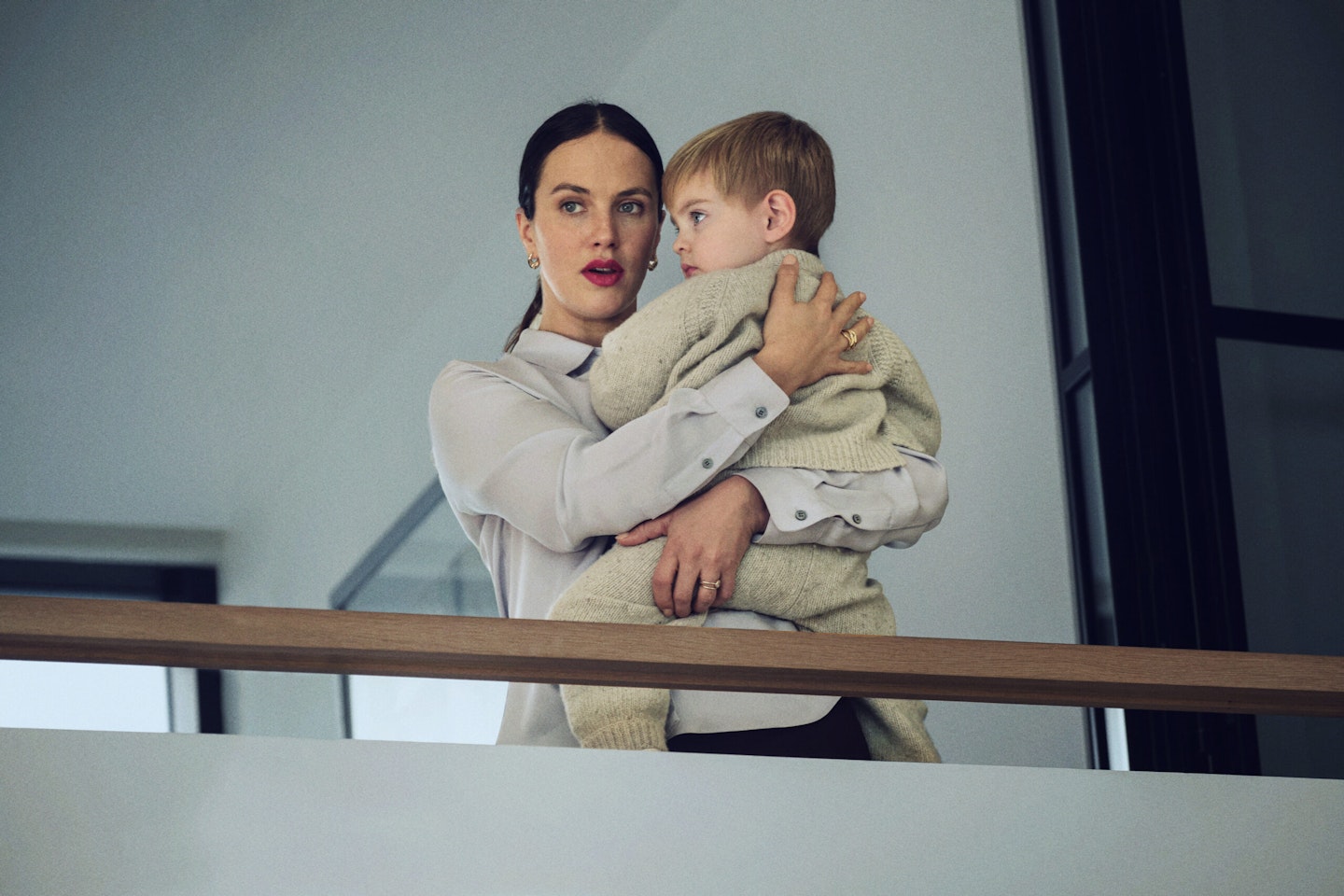ITV1’s new psychological baby-swap drama, Playing Nice, is guaranteed to shock audiences.
Based on the bestselling book by JP Delaney, it centres around two couples, Maddie and Pete (played by Niamh Algar and James Norton) and Lucy and Miles (Jessica Brown Findlay and James McArdle), who had premature babies in the neonatal intensive care unit at the same time – only to later discover the babies were accidentally swapped, and they went home with the wrong children.
It's a gripping, gut-wrenching premise that forces you to consider how you would react if placed in that unthinkable position: would it change how you felt about the three-year-old you bought up as your own, and how you would navigate the difficult road ahead with the other, equally devastated parents.
As distressing as this scenario is, though, one of the most upsetting and unsettling aspects of this story is how Maddie’s postnatal depression is weaponised against her and used as proof she is an unfit mother.
Through a series of vivid flashbacks, we see Maddie’s mental health decline after ‘son’ Theo’s traumatic premature birth. She is immediately separated from him and misses the early bonding rituals of holding and breastfeeding him as he spends weeks in an incubator in the NICU. With partner Pete’s support and the help of professionals, Maddie gets through it and is clearly a loving, caring mother, but the other parent of the swapped child, Miles, uses her trauma for his own agenda, bringing up her mental illness as a safeguarding issue, and later using it in family court.
Writer Grace Ofori-Attah who adapted the book for television and is a former NHS doctor and psychiatry consultant is keen to dispel the misconceptions around mental health and psychiatry to ensure people get the help they need. ‘Women’s mental health, particularly around childbirth and during a child’s first years, is rarely discussed but mental health problems occur commonly.
'More than one out of ten women will experience PND in the first-year post-birth, and some studies estimate as many as eight out of ten women experience ‘baby blues’, a milder, temporary form of altered mood after giving birth. TV gives us a rare opportunity to reach a wide and varied audience, and hopefully, will help start conversations around the topic via this accessible medium.’
She says it's important to depict 'real, relatable characters who have experienced mental health problems, and also show realistic, varied reactions to it'.

Maddie is concerned with the way agencies like the courts will use her past psychiatric history to paint her as a bad mother, potentially dangerous to her own child. But there’s also a resurgence of her own historic fear of not being able to bond with Theo because of her illness. Whilst Pete is incredibly sensitive and ultimately responsive to Maddie’s mental health, Miles weaponises it for his own gain and Lucy also buys into this idea,’ she explains.
After ten years of infertility and a high-risk pregnancy, 37-year-old Jane Shorey experienced bouts of postnatal depression and anxiety after the birth of her daughter and is pleased the show will help raise awareness: ‘Women with PND are not monsters or incapable of loving their child. We care too much. It matters for women like me to feel heard. PND is chronically lonely and unnecessarily shrouded in shame.’
Like Maddie, Jane has felt judged because of her mental illness and, ironically, from a health care professional. ‘At my lowest point, my daughter was in intensive care at 11 months old and I asked the nurse in charge if, given my history, my partner could stay one night to support me. She flat out refused, rolled her eyes when I said I had PND and said, "Well maybe if you aren't fit to look after her, maybe you should go home." I felt ashamed, white hot angry, and suddenly aware that I was alone in my mind – an all too familiar feeling. I had hoped as a woman she would have understood. She didn't.
‘PND being weaponised angers me because it feels like another stick to beat women with. When a woman suffers from PND, the worst thing you can do is use it against her or judge her capabilities as a mother because of it,’ she adds.
Grace’s aim, by giving a realistic and sensitive portrayal of postnatal depression in Playing Nice, is to give hope to the millions of women experiencing it. ‘We wanted to show that you can recover from PND. It is a treatable illness that doesn’t prevent you from forming a strong, loving, lasting bond with your baby.
'Guilt and shame are universal feelings experienced by patients with mental illness, but hopefully having more opportunities to depict these conditions on screen will help ease that added burden of suffering.’
Playing Nice is on ITV1, Sunday 5 & Monday 6 Jan at 9pm
